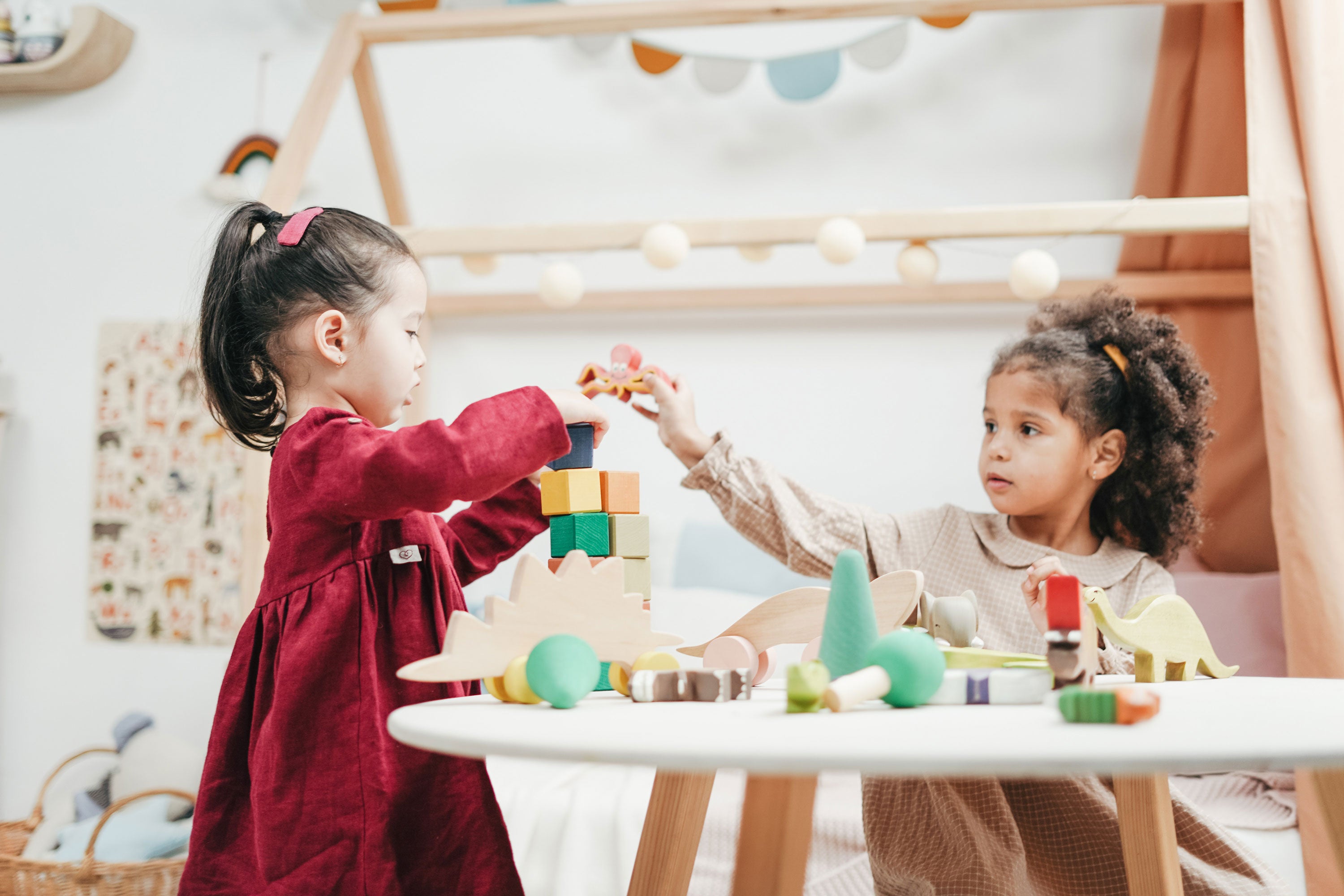Playing isn’t just lots of fun for kids, it’s also essential to their development and growth. Children learn valuable life skills as they build castles in the sandpit, mould playdough into fun shapes, and play pretend shop with their friends. Although we mightn’t realise it, kids are actively learning and developing whilst playing. As kids get older, the types of play they engage in will change and development alongside their growth. To give you a better idea of how your child is developing whilst playing, we’ve outlined some key benefits of play for kids:
Encourages communication
Playing can help develop children’s communication skills, as well as their speech and language skills. Kids develop their communication skills when roleplaying with friends. If they’re playing shop, they need to communicate effectively to decide on what items they’re going to sell at their store, for example. And even if your child is playing alone, they will often talk aloud to themselves to add creative effect to their game. For great roleplay toys, take a look here.
Learn how to share
Playing together with friends is fundamental to teaching children how to share. When playing with others, children have to navigate the difficult situation of not being able to have what they want when they want it. Negotiating this with their friends can often lead to temper-tantrums (depending on their age!), but nonetheless, is an essential part of their development into maturity.

Active Listening
Listening skills are essential in life. This is particularly true for school-aged children, as listening skills are vital to ensuring a productive learning experience. Through play, kids learn to listen to one another and develop essential language skills.
Empathy
Playing with friends often means having to listen to, and understand the emotional needs of others. Children learn empathy, as well as emotional and social skills through play as they listen, share and communicate with those around them.
Cognitive Development
Play is closely associated with the development of children’s intellectual skills including their fine and gross motor skills, thinking and motivation. As children play, they’re developing important problem-solving skills that they’ll build upon as they reach adolescence. Playing with shapes, letters, colours and numbers are great cognitive activities for stimulating children’s learning experiences. Take a look at our great range of educational toys for stimulating children’s cognitive development.
Nurturing their creativity and imagination
Children have incredible imaginations and boundless creativity. Playing with toys can help children nurture their creativity and express themselves in meaningful ways. An art easel or painting set can be the perfect way to encourage children to put their creative abilities to the test!
This article is written in collaboration with Babysits – Australia’s babysitting community. If you’re looking for a babysitter nearby, be sure to check them out! For more great tips for parents, take a look at their collection of helpful community resources.
This article is written by Sophie Barnes from BabySits.com.au































